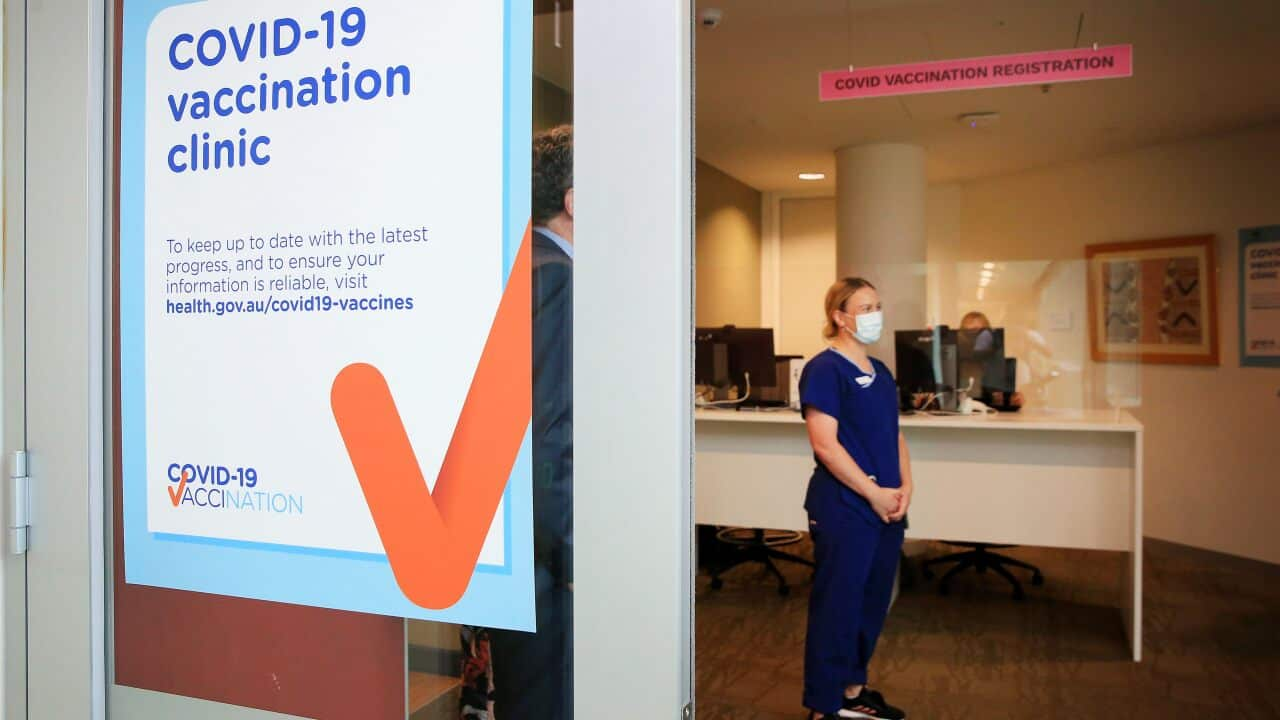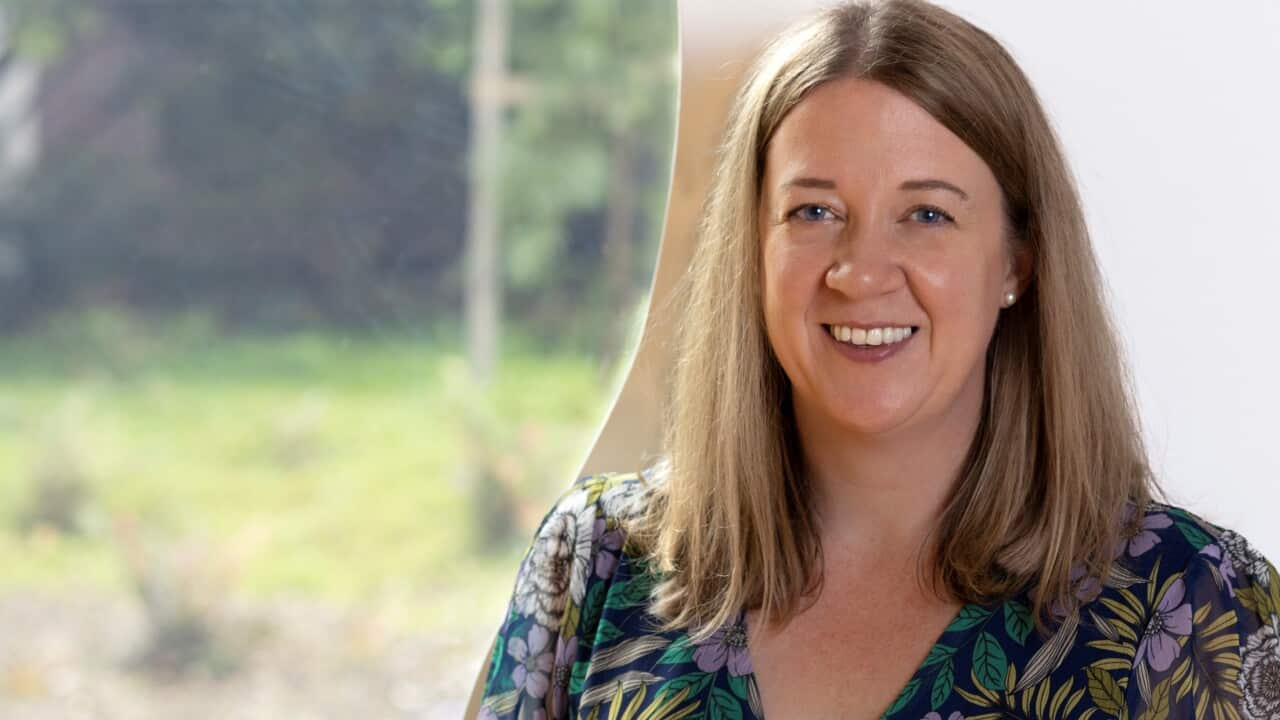Key Points
- Researchers have examined different types of messaging promoting COVID-19 vaccine boosters.
- The study found non-health benefits, such as being able to travel and socialise, were the most effective.
- Vaccine booster uptake has stalled in Australia, and mandates and restrictions are now largely scrapped.
With millions of Australians, researchers have now found a potential method to encourage more people to get their shots.
A new study has indicated that focusing on the non-health benefits of getting a COVID-19 booster, like social opportunities or family gatherings, could make vaccine messaging more persuasive.
However, one expert says vaccine accessibility and reminders from health professionals could also be key factors in boosting vaccine uptake.
What did the study find?
The joint study, which was conducted at the end of 2021, examined messaging around vaccines and how effective they were.
About 450 people were recruited to look at different online COVID-19 booster messages — some discussed personal health benefits, community health benefits, the 'personal agency' of taking control of health, and the non-health benefits of vaccination.
Researchers then surveyed the participants on their vaccine beliefs and intentions after viewing the different types of messages. They found the non-health benefits message was most effective, while the personal agency message appeared ineffective.

According to the Department of Health, millions of Australians have not had a COVID-19 booster in the last six months.
"Health authorities should consider emphasising the broader benefits of vaccination beyond prevention of severe disease to encourage uptake of COVID-19 vaccine booster doses, as well as benefits to people's personal health and the health of the community," the report's conclusion reads.
"These findings can inform communication message development and strategies to improve COVID-19 vaccine booster uptake."
However, there was some evidence that messages emphasising health benefits of COVID-19 vaccine booster doses and the health of the community may increase intention to vaccinate.
One of the researchers involved with the study, Mathew Marques, said while the impacts were "not statistically significant", non-health benefits appeared to have some influence.
"It is complex, (the reasons) why people get vaccinated," said Dr Marques, a senior lecturer in psychology at La Trobe University.
"But overall, this suggests some of that messaging might be enough to move the needle a little bit for some people."
What are the 'non-health' benefits of vaccines?
Some of the key 'non-health' benefits of vaccination discussed in the survey were access to travel, public facilities, and social settings.
During the COVID-19 pandemic, many states, territories and countries introduced travel restrictions, whereby proof of vaccination was required in order to enter.
Vaccine requirements were also common in public facilities such as restaurants, bars, cinemas and shops.
Vaccination status also came with social implications, with some people - particularly those with health complications - hesitant to spend time with anybody who was not vaccinated.
Dr Marques said while the context of 2021 was different to today, understanding people's motivations to get vaccines was still important.
"Our study speaks to a very specific period of time; we are certainly not in that same place where there's vaccination mandates around workplaces and public health restrictions and those sorts of things," he said.
"But it is always important to think about what is happening in a particular context in our society, and simple levers that might be pushed or pulled to encourage people for vaccination and continued vaccination."
What does this mean for COVID messaging?
Julie Leask, professor of public health and social scientist at the University of Sydney, said research has historically shown messaging was not the main factor in whether or not people get vaccines.
Rather, she said accessibility to vaccines was key, with many Australians - such as those living in remote communities - either unable or unaware of how to access vaccines.

According to the latest data, 61.9 per cent of over-65s have not had a COVID-19 booster in the last six months, while 45.9 have not had a flu vaccine this year. Source: SBS News
"While it is very important to communicate - people need to be made aware that they recommended a vaccine - how you communicate is less important than how well you provide services that are convenient and accessible for all people, including those with inequitable access to health care."
Dr Marques agrees.
"The availability of services, access to services ... there are a whole bunch of non-personal things," he said.
"Having access to services, making it easy for people to get vaccines, and explaining those aspects in the messaging, I think, is an important way to continue the vaccination uptake."
While some argue public messaging may not be the most important factor in uptake, Professor Leask says authorities, along with health practitioners, should continue to educate members of the public about vaccines and boosters.
She says many people are not aware of which vaccines or boosters they are due for.
"People are more likely to want to vaccinate if it comes from a health professional who has the vaccine there in the office ... recommendations and encouragements from people you trust are very powerful," she said.
"Health professionals should be checking their patients' vaccination status, and if they're in a risk group, recommending it if they're due."
Professor Leask also advises checking which other vaccines you might be due for, particularly with flu season now upon us.
"Keep up that vigilance, because we have diseases around us that vaccines can do a good job of preventing, and it's also to feel that sense of regret of getting a disease that could have been prevented."











